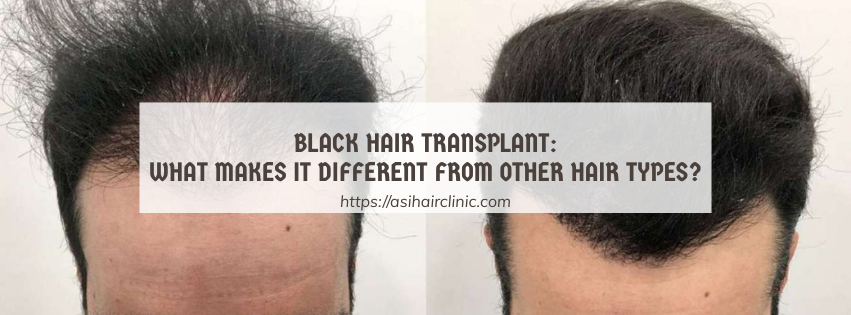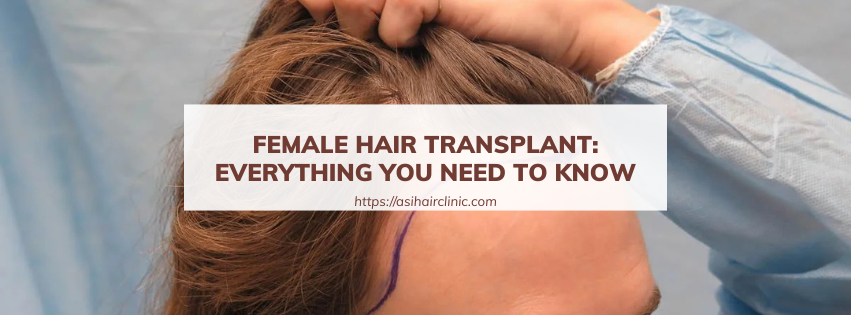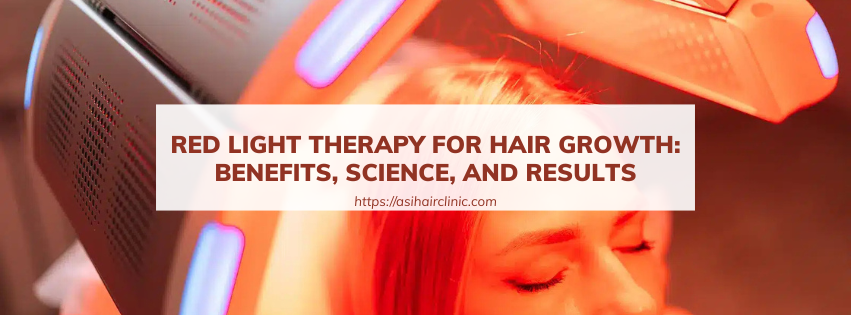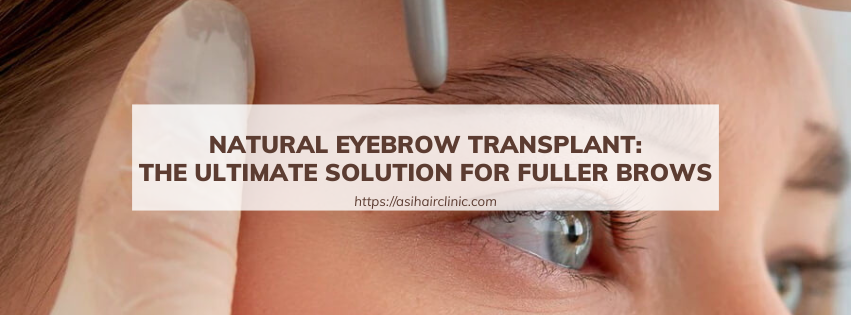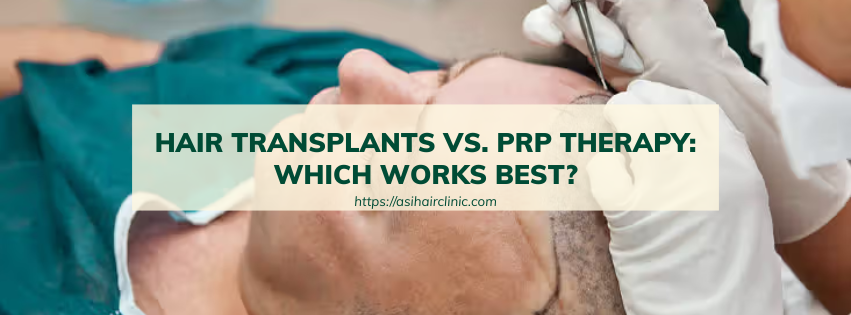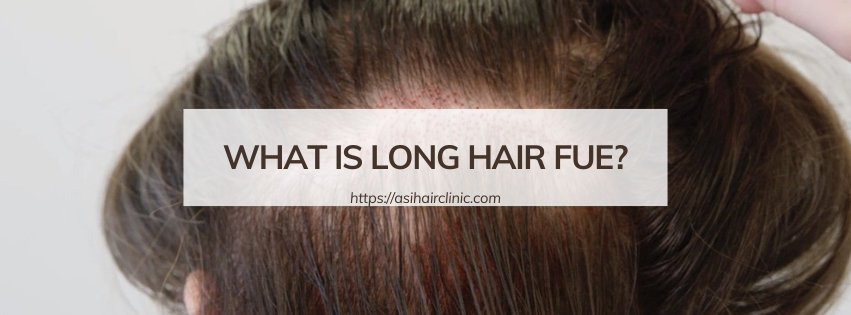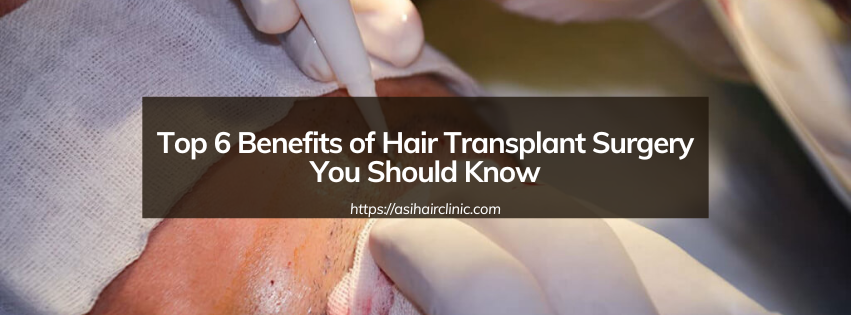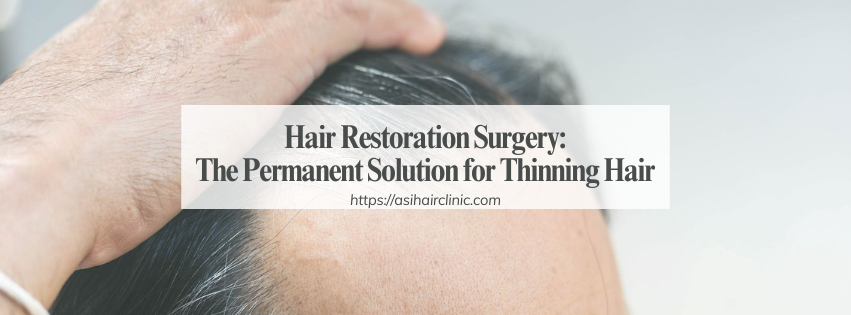Stress and Hair Loss - How It Happens and How to Prevent It
Stress is something we all experience at various points in our lives. From the pressure of work deadlines to personal challenges, stress can manifest in numerous ways, affecting our physical, mental, and emotional well-being. One area that often gets overlooked, yet profoundly impacted by stress, is our hair health. Many people notice an alarming amount of hair loss during periods of high stress and anxiety, but what causes this phenomenon? In this article, we will delve into the relationship between stress and hair loss, how it occurs, and most importantly, how to prevent it.
1. What happens to your body when you are stressed?
Understanding the physiological effects of stress on the body is crucial to comprehending its implications for hair health. Stress triggers a cascade of hormonal changes that can have far-reaching impacts on various bodily functions.
1.1. The fight-or-flight response
When faced with a stressful situation, your body initiates a natural reaction known as the fight-or-flight response. This occurs through the release of hormones such as adrenaline and cortisol. These hormones prepare your body to either confront or escape from a threat, leading to increased heart rate, heightened alertness, and energy mobilization.
However, while this response is beneficial in short bursts, chronic stress can cause a perpetual state of hyperarousal. Over time, elevated levels of cortisol can lead to lasting damage within the body. For example, prolonged cortisol exposure can disrupt sleep patterns, weaken immune function, and create inflammation throughout the body.
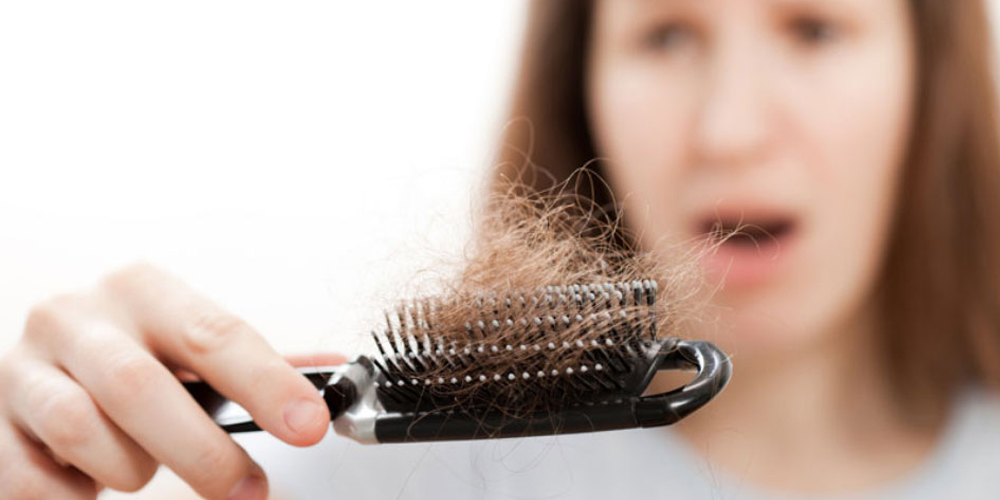
1.2. Impact on the immune system
Chronic stress doesn't just affect your mood; it can also compromise your immune system. When your body is under constant stress, it releases more cortisol over time, which can suppress your immune responses. This suppression makes you more susceptible to infections and illnesses.
A weakened immune system can also contribute to hair loss conditions like telogen effluvium, where hair follicles prematurely enter the resting phase and ultimately fall out. While the immediate impact may not be visible, these subtle changes can accumulate over time, leading to noticeable hair thinning.
1.3. Hormonal imbalances
Stress can greatly influence hormone regulation in your body. High-stress levels can result in hormonal imbalances that particularly affect androgens, which are male hormones that both men and women produce. An increase in androgens can lead to hair loss, especially in individuals with a genetic predisposition to conditions such as androgenetic alopecia.
Moreover, stress can alter other hormone levels, including estrogen and progesterone, which play significant roles in maintaining healthy hair growth. A disruption in these hormones can further exacerbate hair loss.
2. Why does stress make your hair fall out?
The link between stress and hair loss is complex and influenced by numerous factors. Understanding how stress leads to hair thinning requires exploring some critical biological processes.
2.1. Telogen Effluvium
One of the primary mechanisms through which stress affects hair health is through telogen effluvium. This temporary condition occurs when a significant life event-such as trauma, surgery, or extreme stress-pushes a large number of hair follicles into the telogen (resting) phase.
During this phase, hair does not grow and is eventually shed. Typically, it takes several months for the effects of stress to manifest in hair loss, making it difficult for individuals to connect the dots between their stressors and their hair health.
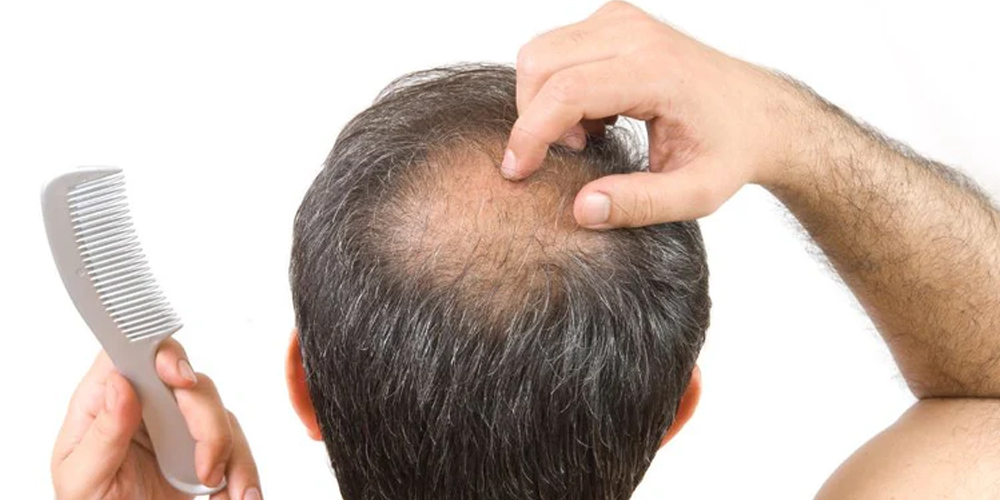
2.2. Hair Follicle Miniaturization
In cases where stress interacts with genetic predispositions, hair follicles may undergo miniaturization, a process more commonly seen in androgenetic alopecia (male or female pattern baldness). Elevated stress levels can trigger the production of certain hormones that lead to this miniaturization, causing hair to become thinner and shorter over time.
The ongoing cycle of stress and hair loss can feel relentless, as each episode of stress exacerbates pre-existing conditions, leading to further hair thinning.
2.3. Inflammation and Autoimmune Response
Chronic stress can trigger inflammatory responses within the body. Increased inflammation may lead to autoimmune conditions that target hair follicles, such as alopecia areata, an autoimmune disorder characterized by sudden hair loss.
When the immune system mistakenly attacks hair follicles, it can result in patchy hair loss. Understanding this connection sheds light on why stress management techniques are vital not only for mental well-being but also for preserving hair health.
3. How long does stress-induced hair thinning take, and what does it look like?
If you've experienced hair thinning due to stress, you're likely wondering about the timeline and appearance of this hair loss. Knowing what to expect can alleviate anxiety as you navigate this challenging experience.
3.1. Timeline of Stress-Induced Hair Thinning
Typically, stress-related hair loss does not occur immediately. Most individuals notice shedding around three to six months after the initial stressor or stressful period. This lag time can be frustrating, as it may feel like stress has lingering effects long after the source of stress has subsided.
It's essential to recognize this timeline because awareness can help temper anxiety surrounding hair loss. Rather than feeling hopeless, understanding that time and care can aid recovery is empowering.
3.2. Visual Indicators of Hair Thinning
Visually, stress-induced hair loss may manifest in various ways. Individuals may notice increased hair shedding while brushing or washing their hair, clumps of hair falling out, or thinning patches across the scalp.
Unlike other forms of hair loss, such as male or female pattern baldness, which typically presents as gradual thinning, stress-related hair loss tends to be more diffuse. This means that rather than losing hair in specific areas, individuals may experience overall thinning of the hair.
3.3. Emotional Impact of Hair Thinning
Another aspect worth discussing is the emotional toll of experiencing hair loss due to stress. Hair often plays a significant role in self-esteem and identity, particularly for women. The visibility of hair loss can intensify feelings of anxiety, depression, and insecurity.
Recognizing the psychological implications of hair thinning is essential. Seeking support-from loved ones or professionals—can provide comfort and validation during this challenging time.
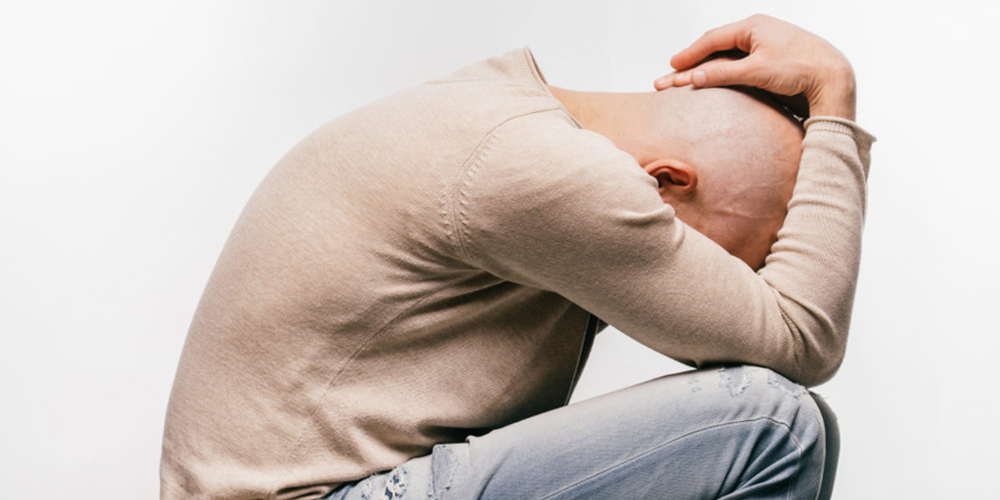
4. Will hair loss due to stress-related conditions grow back?
For many individuals grappling with stress-induced hair loss, one of the most pressing questions is whether their hair will return. Understanding the potential for regrowth can spark hope amid distress.
4.1. Natural Regrowth Potential
The good news is that stress-induced hair loss, particularly in the case of telogen effluvium, is usually temporary. Once the underlying stressor is addressed and managed effectively, hair growth often resumes.
Most people begin to see signs of regrowth within six months to a year after the stressor is resolved. New hair may appear as fine, wispy strands, gradually thickening as the follicles rejuvenate and recover.
4.2. Factors Affecting Recovery
While many individuals experience regrowth, certain factors can influence the timeline and extent of recovery. Genetics, age, nutrition, and overall health can all play a role in how quickly hair returns to its former density.
Individuals already predisposed to hereditary hair loss may face additional challenges during recovery, as the combined effects of genetics and stress can complicate matters. Notably, adopting healthy lifestyle choices-such as balanced nutrition, exercise, and stress management—is crucial for supporting hair regrowth.
4.3. Importance of Consistency
To foster optimal conditions for hair regrowth, consistency is key. Implementing regular self-care routines, managing stress levels, and potentially consulting professional guidance can foster an environment conducive to hair health.
Through patience and diligence, individuals can encourage recovery and restore their hair's vitality.
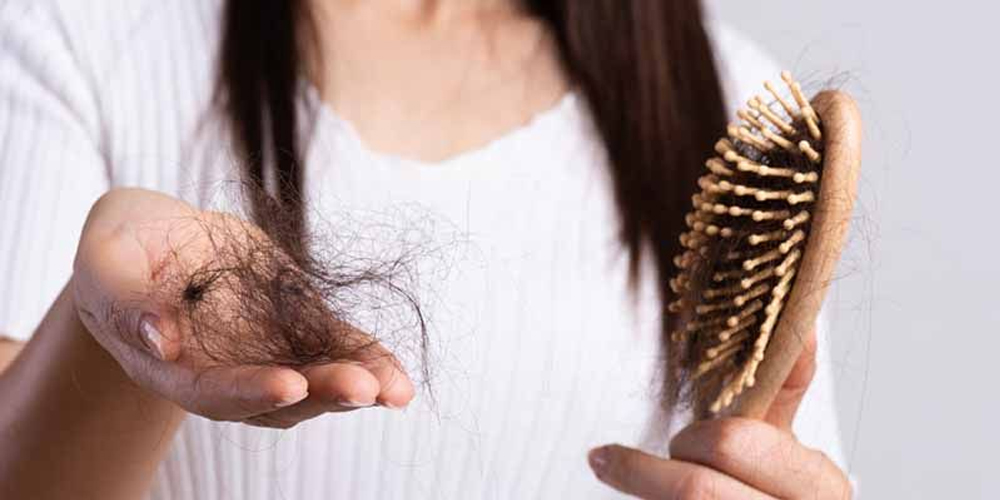
5. What can you do about it?
Dealing with hair loss caused by stress involves proactive measures and lifestyle adjustments tailored to promote overall well-being. Implementing sustainable strategies can yield positive outcomes for both your mental health and hair health.
5.1. Stress Management Techniques
First and foremost, addressing the root cause of stress is essential. Various stress management techniques can be helpful, including mindfulness practices, deep breathing exercises, and yoga.
Mindfulness encourages individuals to stay present, reducing anxiety related to past or future stressors. Engaging in yoga can improve flexibility and strength while simultaneously calming the mind, creating a holistic approach to stress reduction.
5.2. Nutrition for Healthy Hair
A well-balanced diet rich in vitamins, minerals, and proteins is fundamental for promoting hair health. Incorporating foods high in omega-3 fatty acids (like salmon), vitamin E, iron, zinc, and biotin can nourish hair follicles and support growth.
Additionally, staying hydrated is vital for maintaining the health of your skin and scalp. Drinking adequate water ensures that hair follicles receive the moisture they need to flourish.
5.3. Consult a Specialist
If hair loss persists despite lifestyle changes, consulting with a healthcare provider or dermatologist specializing in hair loss may be warranted. They can assess underlying conditions and recommend personalized treatments or therapies to address specific concerns.
Options may include topical solutions, supplements, or even counseling to manage stress. Tailoring a plan based on individual needs can significantly enhance outcomes.
Conclusion
Understanding the intricate relationship between stress and hair loss unveils the profound impact that mental well-being has on physical health. While stress may temporarily disrupt hair growth and lead to thinning, recognizing the signs and taking proactive steps can empower individuals on their journey to recovery.
LATEST POSTS

